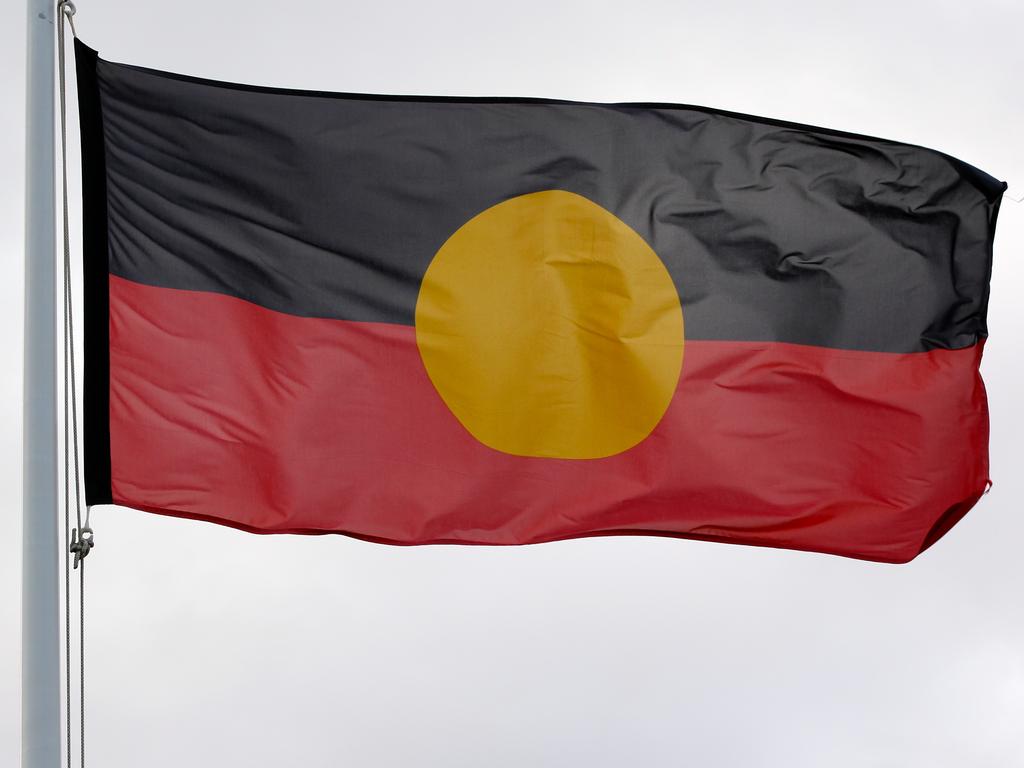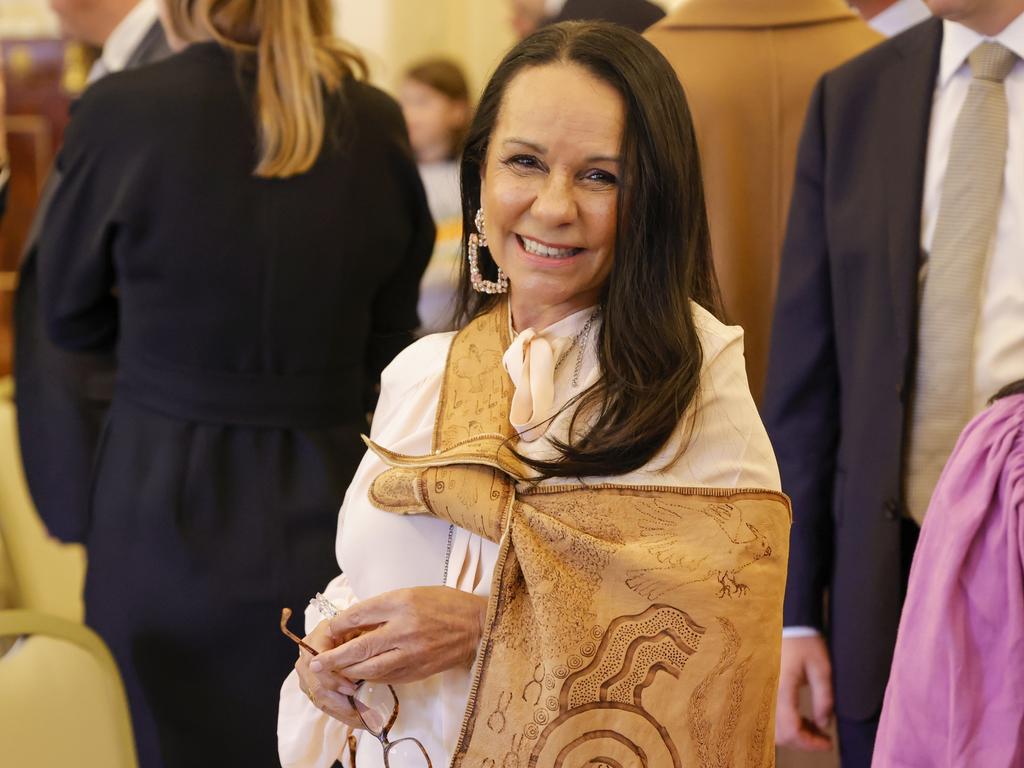
Usefully, prominent Melbourne lawyer Mark Leibler belled the cat on that modus operandi. The voice advocate said last weekend that if the Albanese government provides Australians with details of the voice model, it would lead to “a devastating No vote”. Leibler’s answer is simple: don’t give Australians details about this Indigenous body at the referendum. Simply ask them to vote on the vibe of the thing.
Leibler’s position is curious and revealing. Only a few months earlier he described those who have not agreed holus bolus to the Uluru statement’s proposal for a voice to parliament as “ignorant”. Now it seems that Leibler wants the government to keep Australians ignorant about the details of the model in the referendum to secure a successful Yes vote.
This points to the mounting disrespect for voters at the core of the campaign for a constitutionally entrenched voice to parliament. While elites demand respect for our First Nations people, they display contempt towards others. The advocates don’t want ordinary Australians to be educated about the proposal lest it delivers a No vote.
Another recent example of this modus operandi, of keeping details away from voters, came from University of NSW pro vice-chancellor Indigenous and law professor Megan Davis. Davis said recently that “the amendment to the Constitution is as simple as the proposal”.
She described the change to the Constitution as an “an enabling provision similar to the way the High Court of Australia was set up: the Australian population voted on a provision that proposed a High Court be created, but the legislation was passed three years later”.
Both limbs of this argument are misconceived. The proposed provision (as far as one can glean its contents from what Davis said) would not be simply an enabling provision or a facilitator. Nor is it remotely comparable to the way the High Court was set up in 1901.
If the provision were truly an enabling provision – for example, “the parliament may pass laws establishing, regulating, amending or abolishing an Indigenous voice to parliament” – this might be unobjectionable to many Australians because here a race-based voice remains at all times and in every way subordinate to parliament, and thus effectively accountable to voters at every election.
But voice advocates, although few of them have come clean with the electorate about this, want to add two additional features to the constitutional provision that take it a world away from being a mere enabling provision. First, they want to remove from parliament the power to decide to establish an Indigenous voice. The advocates want the constitutional provision to mandate the establishment of this voice, not leave it to parliament to pass laws establishing it if parliament wishes.
Second, and more critically, they want to remove from parliament the power to abolish this separate voice. Advocates want a mandatory provision to the effect that parliament must establish an Indigenous voice and must maintain it in existence. This tells parliament what it must do. It does not give power to parliament to decide what to do. It is patently not facilitative.
If a race-based voice is permanent from day one and can’t be abolished, Australians are entitled to be told in advance and in detail about the exact features of any entity that is to be permanently inserted into our Constitution. If it is permanent from day one, we lose the ability to use an election to abolish this novel, untested impairment of parliamentary sovereignty.
By contrast, if everything about this voice, including its very existence, is up to parliament, we have less reason to demand details of the model upfront. The saviour is that we, the people, effectively get to pass judgment on it every three years. If one parliament gets it wrong, we can vote for a new parliament that will fix any problems.
Now to the argument that an alleged “enabling provision” for an Indigenous voice would be just like the way the High Court was established. Frankly, this argument is risible. Rude is another word. It preys on the fact many Australians are not familiar with the finer details of the Constitution and won’t be checking this document when claims about it are made.
I checked my dog-eared, coffee-stained copy of the Constitution after reading Davis’s claim that having a referendum for a voice, by providing the power before a model is settled, was akin to setting up the High Court.
Chapter three of the Constitution, consisting of sections 71 to 80, reveals just how wrong this argument is. Chapter three of the Constitution as approved by referendums in each of the colonies between 1898 to 1900, and enacted in 1901, contained very lengthy and highly detailed provisions about the features of the High Court. Section 72 of the Constitution, for example contains highly prescriptive details about the appointment, tenure and remuneration of judges of the High Court (and other courts created by parliament). Sections 73 to 77 contain elaborate provisions about the jurisdiction of courts.
Not only did the voters in the colonial referendums have all these highly specific details in front of them, they had the benefit of hundreds of years of common law and jurisprudence that enabled them to understand what they were voting for when they agreed to vest “the judicial power” of the commonwealth in the High Court. The broad content of the phrase “judicial power” was well and clearly understood.
Voters deserve more respect. We should be so lucky as to have this level of understanding about the proposal to entrench a race-based voice to parliament in the Constitution.
Telling us that work has been done for years by small groups of elites is no reason to keep details from voters at the referendum. The voice is a body without precedent or process. It is a complete blank slate. Indeed, it is a blank slate because nobody, no government, has settled any of its details.
Yet we are told if we don’t agree to insert this body permanently into the heart of our body politic we are impolite, ignorant and ideological.
Tell ’em they’re dreaming.






This newspaper should be commended for providing readers with a robust debate about whether this country should enshrine a race-based voice to parliament in our Constitution. You won’t find this at the campaigning ABC, where diversity of opinion is snubbed daily. That’s a shame. Vigorous debates provide Australians with a better understanding of the proposal and of the modus operandi of voice advocates.